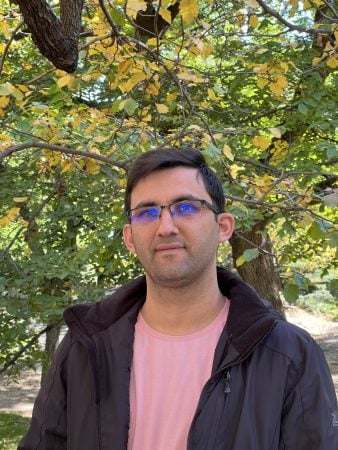As a final-year PhD candidate in Biomedical Engineering at Michigan Tech, my research revolves around understanding complex blood flow patterns and their implications for aneurysm development and rupture. Specifically, I focus on two types: intracranial aneurysms and abdominal aortic aneurysms.
In my dissertation, I utilize computational fluid dynamics to simulate blood flow within 3D vascular models extracted from medical imaging data of patients with aneurysms. By applying innovative computational methods, I analyze velocity and wall shear stress characteristics within the aneurysm. This approach has led to the development of new metrics that enhance our ability to distinguish between ruptured and unruptured aneurysms, shedding light on flow conditions indicative of potential rupture. Moreover, I’ve devised a systematic method for assessing the composition of intraluminal thrombosis (ILT). Using deep learning algorithms, I identify the ILT region within the vascular model and employ radiomics to analyze its structural properties. This analytical framework provides novel insights into the ILT region, thereby enhancing our ability to identify abdominal aortic aneurysms at heightened risk of rupture. The final aspect of my doctoral research is to develop a nearly automated pipeline to run CFD simulations with minimal user interaction. This automated workflow aims to eliminate time-consuming and labor-intensive steps, making the process more efficient and user-friendly.
My hope is that this work will one day eliminate the current barrier to integrating CFD simulation into clinicians’ workflow and help doctors leverage CFD simulation in their decision-making process. The quantified measures of flow characteristics and ILT composition may be utilized in the clinical setting to better identify which aneurysms are at high risk of rupture. This could guide clinical decision-making to determine if aneurysm surgery prior to rupture is worth the risk, or if an aneurysm is likely to remain stable, posing minimal risk to the patient’s health.
I want to express my sincere gratitude to the Graduate Dean Award Advisory Panel for granting me this award. I also want to thank my advisors, Dr. Jingfeng Jiang, and my committee members, Dr. Sean Kirkpatrick, Dr. Hoda Hatoum, and Dr. Weihua Zhou, for their invaluable guidance and expertise throughout my time at Michigan Tech. Their mentorship has been crucial in shaping my research and academic journey.
